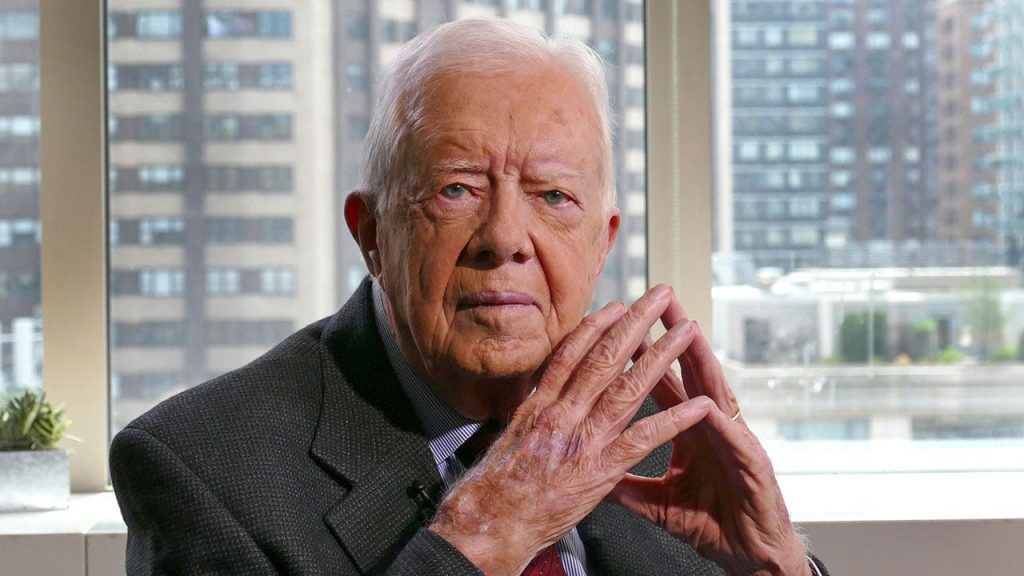The passing of former President Jimmy Carter, the 39th president of the United States, at the age of 100 has prompted a national outpouring of grief and respect. President Joe Biden, in a gesture of reverence for Carter’s legacy, signed an executive order mandating the closure of all executive departments and agencies of the federal government on January 9, 2024, the day of Carter’s funeral. This closure serves as a symbolic “mark of respect” for a man whose life was dedicated to public service and the betterment of humanity. Carter’s funeral will be held at the Washington National Cathedral, following a period of lying in state at the Rotunda of the U.S. Capitol, allowing the nation to pay its final respects to the former president.
Beyond the executive order, President Biden further honored Carter by proclaiming January 9, 2024, as a National Day of Mourning. This declaration underscores the significance of Carter’s contributions to the nation and the world. The presidential proclamation also directed that all American flags be flown at half-staff for a period of 30 days, a visible symbol of national mourning and remembrance. Biden’s call for Americans to gather in their places of worship on the National Day of Mourning and his invitation to the international community to join in this solemn observance reflect the global impact of Carter’s life and work.
Jimmy Carter’s journey from a peanut farm in Plains, Georgia, to the highest office in the land is a testament to his unwavering commitment to service. His education at the United States Naval Academy and subsequent service in both the Atlantic and Pacific fleets instilled in him a sense of duty and discipline that would characterize his career in public life. From his time as a state senator to his tenure as Georgia’s 76th governor, Carter consistently demonstrated a deep concern for the well-being of his constituents.
As president, Carter prioritized education, energy, conservation, and nuclear nonproliferation. He spearheaded the creation of both the Department of Education and the Department of Energy, recognizing the vital roles these institutions would play in shaping the nation’s future. His commitment to conservation reflected his deep appreciation for the environment and his understanding of the importance of responsible stewardship of natural resources. On the global stage, Carter championed nuclear nonproliferation, working tirelessly to prevent the spread of nuclear weapons and promote peace.
The White House’s statement following Carter’s death emphasized his unwavering faith in the American people and his belief in the power of good governance. Carter’s presidency was marked by a deep-seated belief that government should serve the people, and his actions reflected his boundless faith in their capacity for progress. His dedication to human rights, freedom, and democracy transcended national borders, as he worked tirelessly to promote these values around the world.
Carter’s legacy extends beyond his political achievements. His lifelong partnership with his wife, Rosalynn, who stood by him for over 77 years, exemplifies the power of love and commitment. Their shared dedication to humanitarian causes, particularly through Habitat for Humanity, has touched countless lives and continues to inspire generations to come. Jimmy Carter’s life stands as a testament to the enduring power of faith, service, and compassion, leaving an indelible mark on both the United States and the world. His legacy of peacemaking, humanitarian work, and commitment to human rights will continue to inspire generations to come.

